
We kindly inform you that, as long as the subject affiliation of our 300.000+ articles is in progress, you might get unsufficient or no results on your third level or second level search. In this case, please broaden your search criteria.


One of the typical and relatively stable features of the everyday life of the Bulgarianimmigrants in the historical and cultural region of Bessarabia are the patronal festivalsand customs held within the frameworks of the village, neighbourhood or familyand referred to as zbor/sabor (збор/събор), hram (храм), kurban (курбан), tsarkva(църква), panagir (панагирь), cherkuvane (черкуване), moleben (молебен) etc. Asfor the designation збор (a fair), it is clear that it precedes the Russian designationхрам (a patron saint’s day) which penetrates the region under study later on andwhich is widely used at present. What stirs up bigger interest is the fact that exceptfor village church festivals this term (as well as some of the other above-mentioned) was also used for intervillage festivals held at the landmark of the territories of two,three or more villages – the so-called fairs at the landmark also known as moleben orcherkuvane for rain and good health.As far as the patron saint’s day is a universal Christian phenomenon and stilla general practice in the villages of the region studied here, it could be assumedthat the gathering itself, the making of zbor (or moleben) at the landmark (at theborder between a group of villages), which is neglected today almost everywhere,is a form typical only of the immigrants (Bulgarians and Gagauzians) in Bessarabia.This practice attracts the attention with respect to its nature and development as partof the all-Bulgarian system of patronal village festivals as well as with relation tothe influences, changes and specifics through which it inevitably goes under theconditions of the many-tounged and polycultural environment of Bessarabia and theRussian Orthodox Christianity.The fieldwork materials collected so far do not allow a coprehensive and thickdescription of the phenomena intriguing us as well as a more elaborate analysis.That’s why the article only poses the problem or rather interpretes it in connectionwith some concepts of the kin and family-territorial patronal festivals and customswhich were formulated a long time ago in the Bulgarian science but which are stillrelevant.
More...
In the folklore of many peoples, the luminous bodies and phenomena are related tothe traditional concepts of the world structure. In the Bulgarian popular astronomythe Milky Way is seen as a Straw Road. The folklore texts present the “road” as both aborder and a bond between the “own” and the “alien” space, between the earthly andthe “divine” world. It is a process of movement in the mythological space but it couldalso be a place where the worlds in this space meet. Such development of the conceptof the “road” in the Bulgarian popular tradition is related to liminal rituals typical ofcalendar festivals including Christmas.
More...
The article makes a brief historical review of the development of Roma publicationsin the countries in Eastern Europe by emphasizing the processes in each country andthe interrelations between their policies regarding the Roma culture and the Roma literary production. The aim of the article is to show that the development of Roma literature is related to the political, social and cultural context in the country or region of its creation. The comparative historical approach is the most appropriate for the purpose since the tendencies in the development of the Roma literature are related to the policies of identity (in general or directed to the Roma population) in different historical periods and regions.
More...
The purpose of the present article is to trace the history and to show the activities performedby the gypsies/Romani organizations in Shumen, Bulgaria during the period between 1944 and 1990. The history of these organizations is going through several periods which match the political periods regarding the gypsy population in Bulgaria.It was founded in 1946, when Bulgaria was leading a policy of ethnical recognition of the gypsies and a wide consideration of their cultural and historical identity. Inthe beginning of the 1950s, due to the fear of the so-called “turcheene” (i.e. public demonstration of the Turkish ethnic identity) among a large part of the gypsies, there was a turning-point in the public policy – the Cultural and Educational organization of the gypsies was forbidden and they got into the hands of the “Fatherland Front” (“Otechestven front”). In spite of the restrictions and interdictions, in 1967 the leaders of the Gypsy movement in Shumen restored their organization by the name of “Roma”, but they didn’t get the recognition and validation from the government. In spite of this, they continued to work for the protection of the Gypsy community in Shumen and in all of their activities in several basic directions (socioeconomic, political, educational and cultural) were performed by the organization’s name. This continued until the beginning of the 1990s, when the organization was recovered, andalong side this a number of new organizations arose.
More...
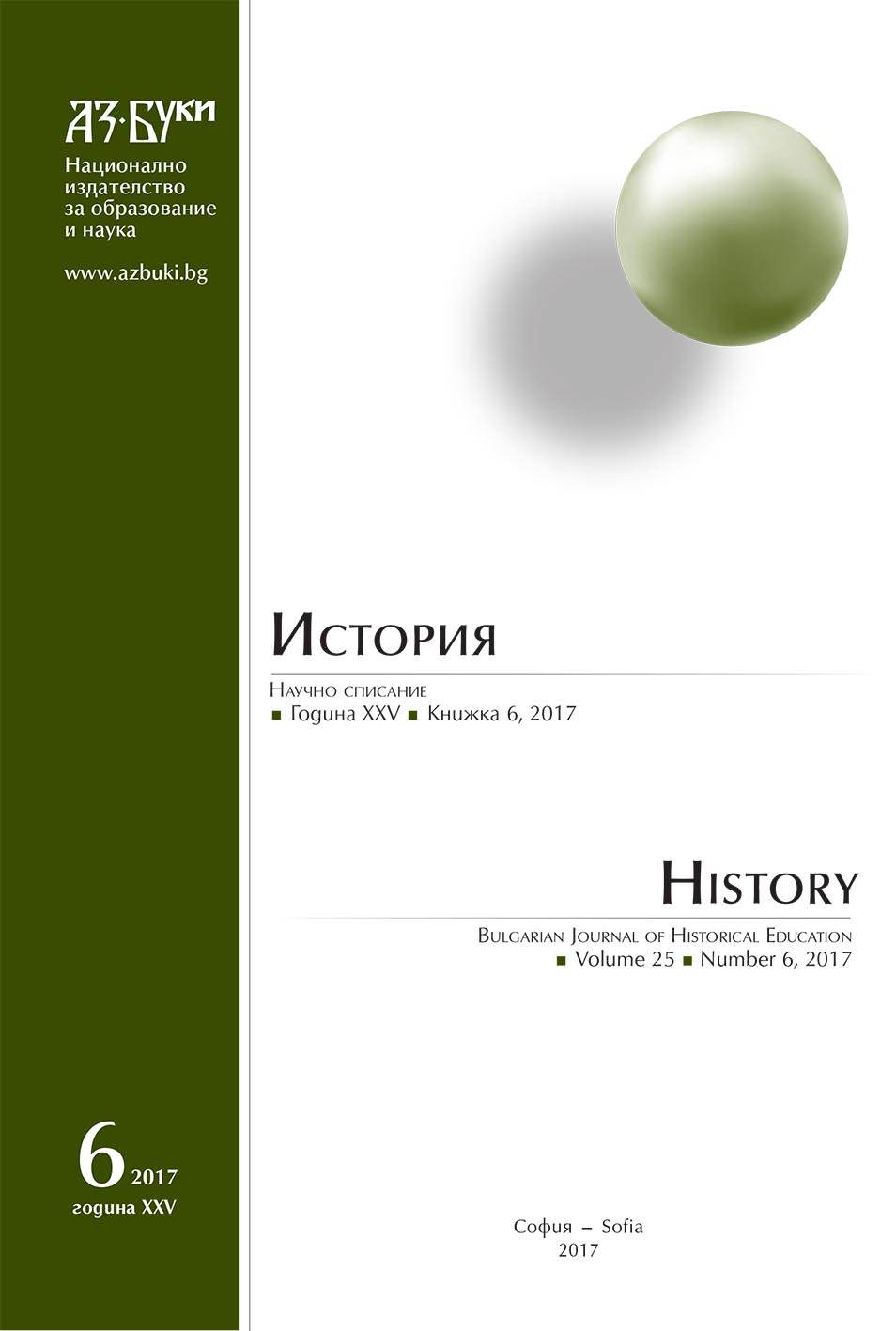
In this paper I briefly investigate the impact of three types of state agricultural policies on rural households in Valchedrum region, North West Bulgaria. I argue that the state remains a key factor, capable to transform the local economies, identities, and everyday life in a few years. I argue that unlike the situation in socialist Bulgaria, when the state lacked resources to implement its policies and had to rely heavily on coercion, the local people have rather limited options for agency now against powerful and efficient EU agricultural policies.
More...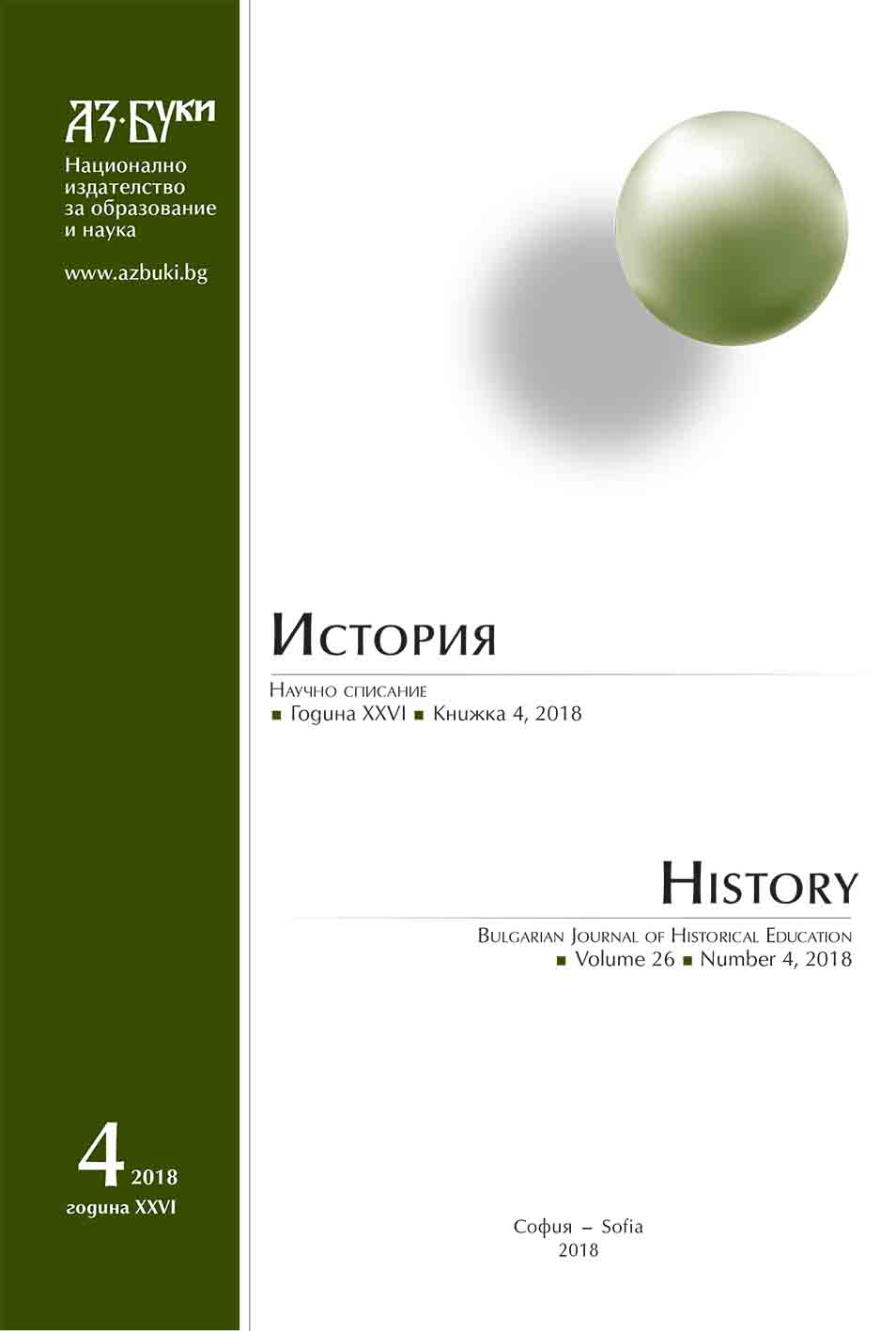
The problems concerning research, preservation and management of Bulgarian cultural monuments in Romania have attracted the attention of the Ministry of Foreign Affairs and particularly the Embassy of the People‘s Republic of Bulgaria in Bucharest for many years. The Art and Culture Committee, the Bulgarian Academy of Sciences and other institutions are also involved in solving of these problems. Although many meetings of political and cultural leaders of various fields and the exchanged diplomatic notes the targeteted specific measures have not been achieved. The first reason for this is the lack of coherence, systematicity and organization and the lack of persistence, flexibility and purposefulness in solving of these problems by the People‘s Republic of Bulgaria.The second reason is the „special line“ of the Romanian government towards Bulgarian cultural interests and monuments. Remarkable in this aspect is the case of the Bulgarian School „Hristo Botev“ in Bucharest, which accordingly to the new architectural planning, were destroyed in February 1988 with an old Bulgarian church on Str „Kalarashilor“ (present-day „Cornelius Coposu“ Blvd.).
More...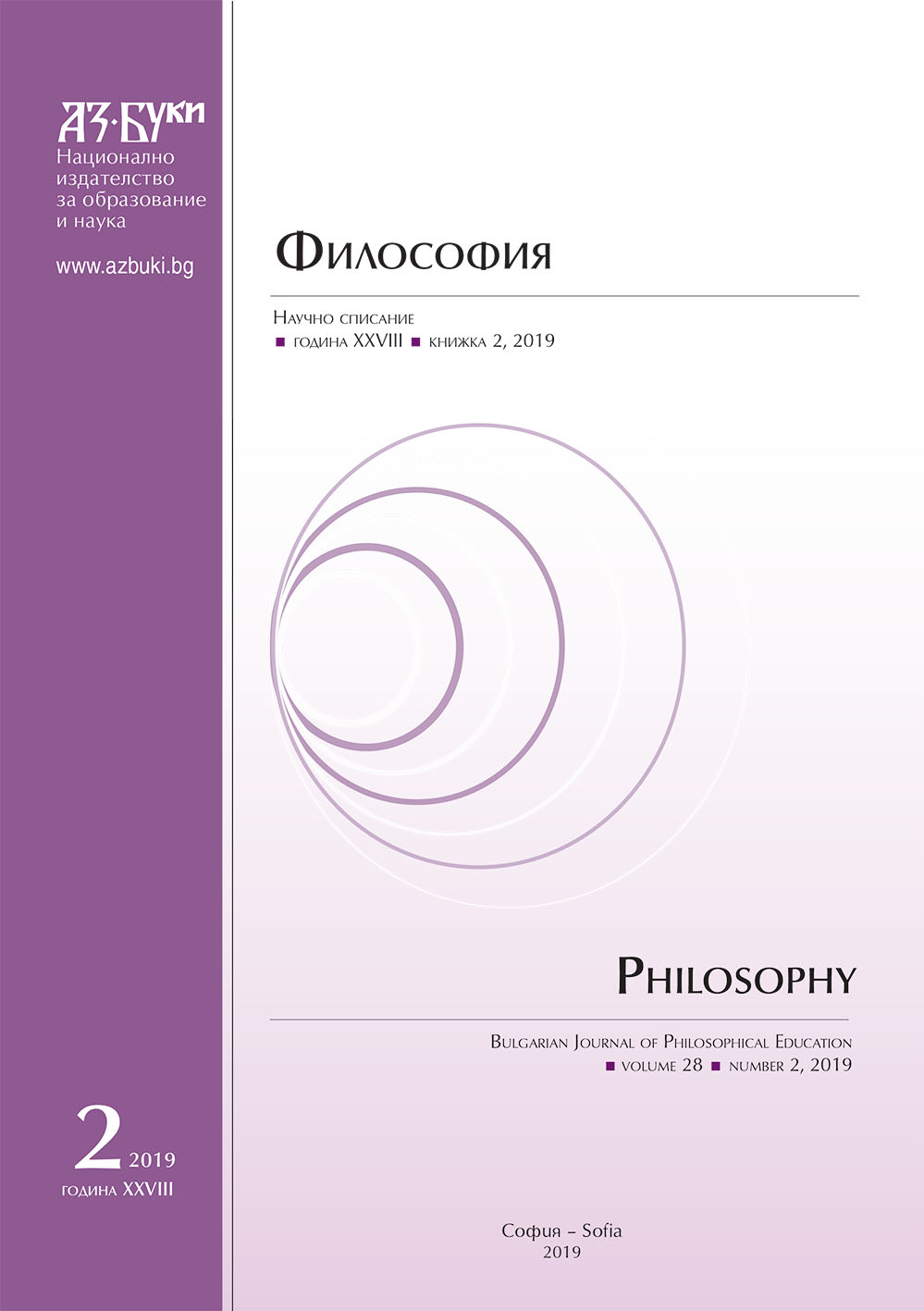
Freedom, in the context of the ethical views of the Russian classics – Berdyaev, Solovyov, Dostoevsky and others, is examined. Emphasis is placed on freedom and the enormous challenges to achieve it. The faith in Man and the possibility for divine incarnation is a distinctive characteristic of Russian religious philosophy. The first part discusses Berdyaev’s statements about God and unbridled freedom. He regarded Christianity as a new beginning in the understanding of freedom. Berdyaev highly appreciates the contribution of Dostoyevsky to this topic. Freedom and related suffering are the big themes of Dostoyevsky. The battle between Christ and the Antichrist is studied.
More...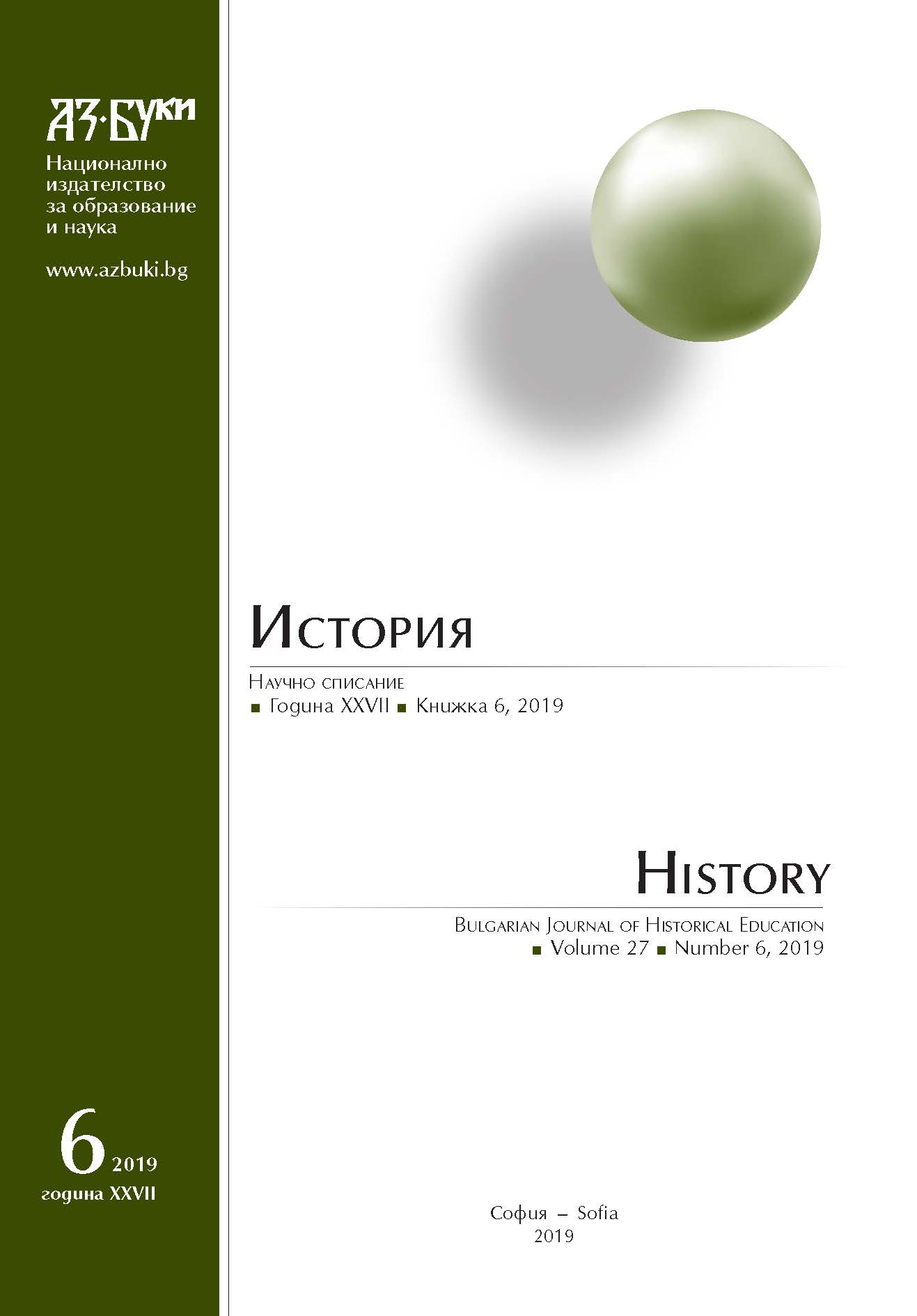
The post-war situation confronts the Turkish population in Bulgaria with the challenges of both the strained relations between Sofia and Ankara and the assimilation-led policies of the communist ideology against the minority. This publication examines the attempts of the Bulgarian Communist Party to build a new view of life among the Turkish women in Bulgaria through the mechanisms of education and culture. By pursuing its goal of depersonalizing the influence of religion at the expense of emancipatory perceptions of women’s active participation in social and political life the state harnesses totalitarian propaganda in order to change the value orientation of the Turkish women. The striving for modernization of the life of the Turkish women is also in compliance with the specific tasks and problems of the simultaneously pursued minority policy in the country.
More...
The proposed text does not attempt to present in detail the transformations pertaining to the Bulgarian Turks that have taken place in the state system and the society in Bulgaria since November 10, 1989. Rather, it attempts to explore a phenomenon which, at first glance, undoubtedly resembles nostalgia, but reveals, after a more thorough looking into it, the Bulgarian Turks‘ memory of the repressive party line of the totalitarian state and its culmination - the policy of forced assimilation, cynically called „revival process“. Also, the new reality of the Transition evokes a certain perception of the totalitarian regime, not in regards to its construction, normative or services, but in regards to its everyday life expressed through work realization, education, organization of public spaces, etc.
More...
The issue of gender justice has drawn the attention of gender scholars as does gender equality a justice or civilization. Because of this, the paper examined women and gender equality justice or civilization. In discussing these gender issues, several documents, reports, newspapers, magazines, archives, articles, journals, among others, were systematically reviewed to support the argument. Two theories were used in supporting the argument. These are Islamic Feminist and Liberal Feminist theories. The assumptions of these theories centered on gender equality and gender justice in society. The study found that gender equality is not civilization but justice. This is of the fact that both men and women are born equal and need equal justice for the development of the nation. The paper recommended that men and women should be given equal opportunity in all aspects of life in order to ensure gender justice. Parents and religious leaders should adhere to the principles of gender equality for the betterment of society.
More...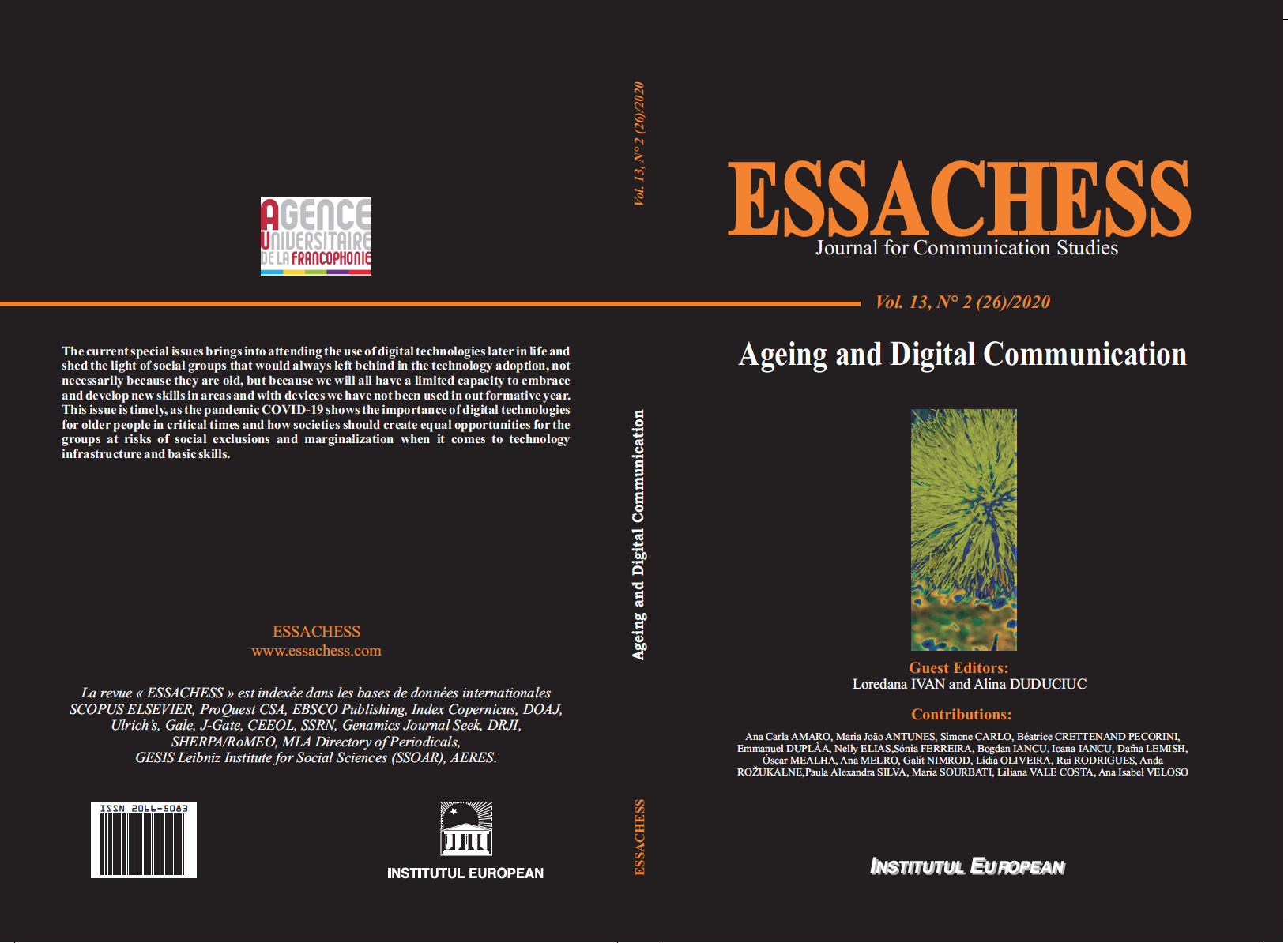
In the context of constant population aging, digital technologies are required especially for communication and geriatric care. However, before a large-scale deployment could be implemented, the general technological acceptance level should be assessed. The paper aims to descriptively analyze the perception of aging adults on mobile technology. Based on Technology Acceptance Model (TAM), the variables considered are emotional attachment on technology, actual use, perceived ease of use, perceived usefulness, and behavioral intentions. Methodologically, a set of semi-structured interviews have been conducted. The results show that although individuals love their mobile devices and although they perceive them as being useful, the devices are not easy to be used and there are numerous concerns regarding technology. Paradoxically, while they claim the like owning smart devices, they consider them too complex and intrusive.
More...
Ontario’s action plan for seniors recognizes that seniors have health and education needs, among other needs (Gouvernement de l’Ontario, 2017). To partially meet these needs, we have proposed an innovative gerontagogical approach by combining two existing concepts: narrative gerontology with digital storytelling. Thus, by this new concept of Digital Narrative Gerontology, we give seniors a special place for the elaboration of the message they wish to bequeath to other generations, by creating together their life testimonies in digital form easy to share, while mutually acquiring new digital skills and exploiting the benefits of narrative gerontology, such as well-being, aging well, resilience and wisdom, but also informal and intergenerational learning. Communication was important on two levels: between the elder and the researcher during the oral narration and the creation of the digital narration in a relationship of mutual trust as well as in the form of digital testimony with a key message to transmit, during the broadcast of the digital narration. This research also made it possible to respond to the curiosity of the elders for new matters in a reassuring framework, adapted to their level, while respecting their learning pace and the choices of knowledge that they wish to acquire. Seniors were proud to share their digital creation with those they had chosen, thus opening the space for discussions, exchanges, emotions and the open door to a new intergenerational “narrative” and social interactions - sources of learning.
More...
The increase of computer-mediated communication use and the aging population has led to a renewed interest in online communities and social networks for active aging and social support in daily living. However, a systematic understanding of the design recommendations in Senior Online Communities is still lacking in scientific documentation. The aim of this paper is to identify the design recommendations used in online communities that support active aging. In addition, this paper highlights some of the benefits of using online communities by older adults. Twenty-three papers published between January 2015 and May 2020 in English-language, peer-reviewed publications, met inclusion criteria. The review presents a set of recommendations for designing online communities to enhance older adults’ social interactions. A process that aims for “engagement” is suggested to strategically guide the design of Senior Online Communities: Interacting – Sense of Belonging (Role-playing, Storytelling, and Legacy) – Engaging.
More...
The role of media and communication technologies in increasing the quality of life of the elderly is today a key topic in academic and policy debates. This article discusses findings from a study into the way public policy frames the role of technologies in later life. The aim of our study was to critically investigate the policy discourses on ‘old age’ and on the role of digital ICT in fixing challenges associated with ageing. Our focus was on digital inclusion policies of the UK and Italy, two countries experiencing similar trends in population ageing but different ICT diffusion patterns. We found that an age-based understanding of digital technology use was quite common, as was an enthusiastic embracing of the role of digital ICT in the implementation of Active Ageing and Information Society goals. We also found that the understanding of the role of digital technology and its relationship to (old) age has been changing over the last decade, starting to reflect social complexity as ICT diffusion increases among older age groups.
More...
The question posed in the call “How the widespread of new technologies are changing the norms and practices of the later life?” was transformed in the main motivation to write the paper. LOCUS scientific research project addresses the subjects of Internet of Things, its impact in maintenaince and sustainability of Cultural Heritage and the important role of older generations to these operations. What the research team noticed is that sometimes it is the dissemination of technologies (and accompanying infrastructures) that promote their use and the creation of the need. And when the technologies do not exist, the infrastructures are compromised and/or nonexistent. It is considered that there is a before and an after period in the way in which the implementation of technological projects influences rural areas and older people. This also means that there is a high relevance in the second question of the call “How social actors, groups, institutions and mainstream media provide, spread or constrain ways of growing older via digital devices?” But also, a high importance of the project developed for the scientific knowledge advancement in the study areas (Communication, Technology, Sociology, Demography, Geography, etc.). The main conclusions of the paper are that digital technologies contributes to those Cultural Heritage maintenaince and sustainability, however, this is only possible with the mediation of oler people. Consequently, those people need to know or learn how to manage digital media and technology in order to contribute for the projects and technology development. Older people aim to participate in these projects and that also influences on their proficiency on technologies (on a win-win basis).
More...
Academic interests on the impact of media on individuals’ lives often highlight differences in knowledge across generations. The spread of disinformation and its potential impact on societies has added a new dimension to this process - the need to continuously improve media and information literacy (MIL). Thus, the older generations face greater challenges, as they need to acquire new skills more rapidly and on a larger scale. This article analyses interrelations between encouragement measures (implemented by media policy makers) and media literacy perception of middle-aged and older population in Latvia (aged 55 to 75). The research employs data of two national representative surveys (May 2019, 1017 respondents; August 2019, 1005 respondents) that include data on respondents’ perception of MIL and test their media literacy skills. The theoretical background of this paper is supported by literature that discusses age and generations in context of media and technology use (Aroldo, 2014), and the Ideological model of literacy (Street, 1984; 1994). Data shows that a higher proportion of middle-aged and older respondents, compared to other age groups, are not interested in MIL issues and evaluate their MIL competences as rather low, but in the everyday practice their ability to recognize and evaluate information is equivalent to that of other age groups.
More...
Mass surveillance programmes and the impact of new information technologies on privacy restriction are among the greatest threats and challenges faced by modern countries. This article aims to present the origins and functional vision of, and some critical remarks on, the Social Credit System (SCS) under development in the People’s Republic of China. The underlying research issue arising from the assumed objective was to respond to the following questions: What is the SCS developed in the People’s Republic of China? What are its origins? How exactly does it function? The following research methods were used to solve the research queries: the monograph method, the document analysis method, the literature analysis and critique method, and the analysis and synthesis methods. In view of the preliminary investigation, the author formulated the following research hypothesis: the SCS should be viewed in a broader sense than merely as a programme aimed at conducting mass supervision of the Chinese society and preventing threats of separatism, terrorism, and social riot (colour revolutions). It is one of the tools to shape a society based on traditional Chinese values and national identity: loyalty, harmony, integrity, and fairness ‒ a disciplined society which, along with a strong and innovative economy, will enable China to attain the status of global power, thus questioning the American “unipolar world order”. Although China is not a democratic country, the system’s success can contribute to implementing similar solutions in other Asian countries. Therefore, it appears justified to conduct studies focused on the SCS.
More...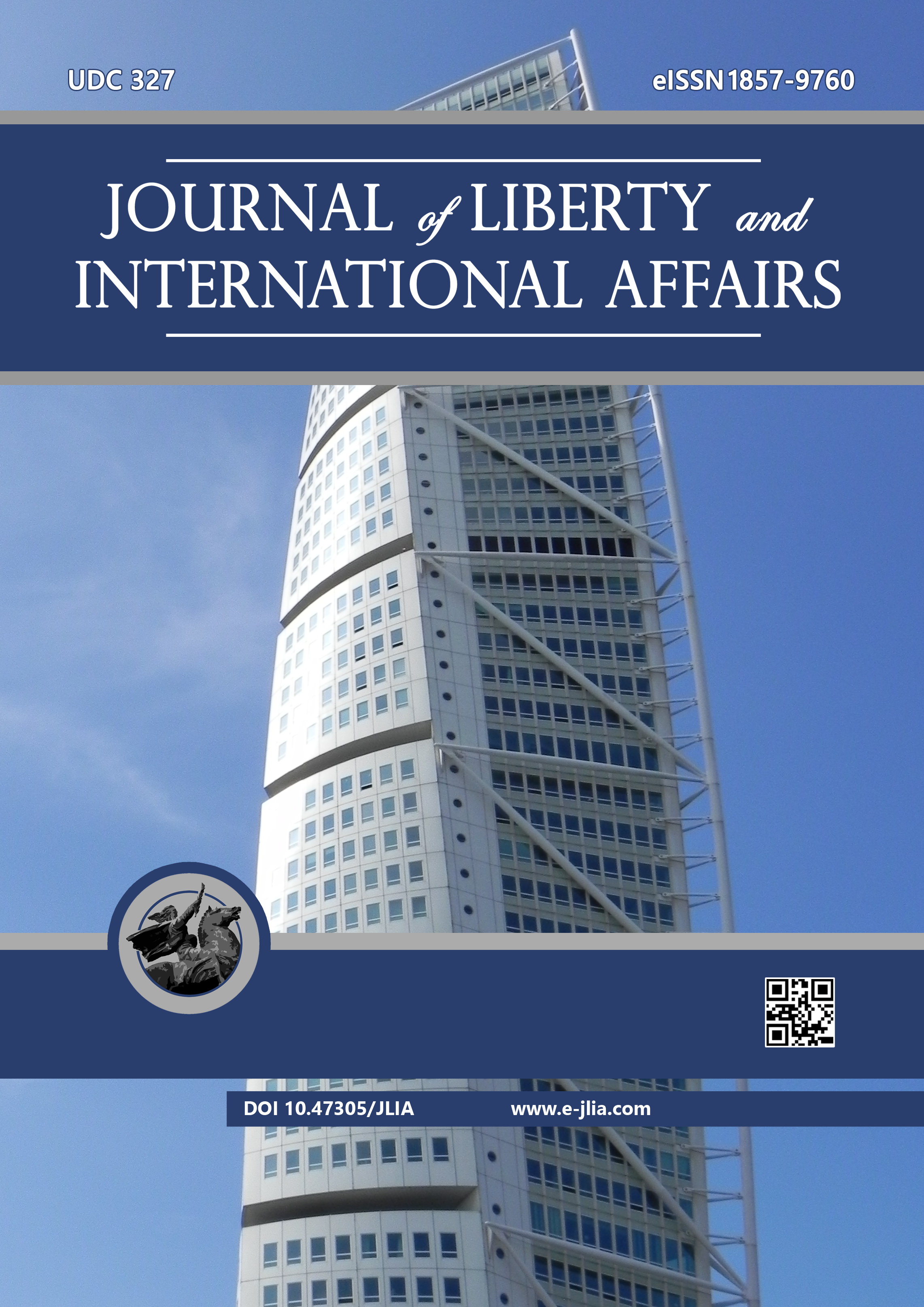
This study aimed to examine the impact of health workers' public service motivation during their participation in response to the Covid-19 pandemic at a time of the highest number of infections and deaths in Vietnam. This study was conducted through a cross-sectional survey using an intentional sampling technique (n=200). In addition, Structural Equation Modeling (SEM) was applied to illustrate the proposed hypotheses. We found that compassion in the workplace, self-sacrifice, and attraction to policy-making impacted work enjoyment positively and significantly. In particular, there was a positive and significant relationship between work enjoyment and task performance but no evidence of the relationship between Commitment to the public interest and work enjoyment. This study further demonstrates the importance of public service motivation of health workers in pandemic response, as previous studies have found. This finding suggests that the government and policymakers in Vietnam should develop policies to promote health workers' public service motivation during their engagement in response to the health crisis.
More...